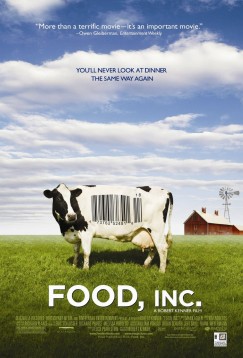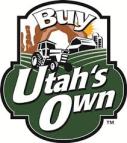As the title suggests, I have some bad news and some good news. I will start with the bad so we can end with the good, obviously.
BAD
Have you seen this article floating around the world wide web? I highly suggest reading it before continuing on with my post, but if not (it is a free country) I will brief you…
So there’s this company, Monsanto (which I will explain more in a minute), and they’ve gone ahead and gotten President Obama to pass a bill that basically provides sanction to the continuation of growing genetically modified organisms (GMO’s) and genetically engineered (GE) seeds. I will not go into too much detail regarding GMO’s and GE’s now, because that’s a topic for another day, but this is what the bill means: It gives the go ahead to continue to plant and sell man-made crops, even if the health risks are unanswered. This means the USDA cannot regulate Monsanto’s production of GMO’s. Monsanto can continue to plant and sell these foods to us and we will have no idea (GMO labeling is not required or available on any food packaging at this time). So if that isn’t troubling enough, my biggest issue is the power the government is giving this company. So let me elaborate more on that.
Monsanto = The devils. They have basically monopolized the agriculture business here in the U.S.A. They have a lot of money and lot of power. Companies like this seriously influence politicians and several laws that can affect you and I, and they usually don’t have the people’s best interest in mind. For example, the MyPlate method, or previously, the Food Guide Pyramid, has been under revision for over a half-century because constant battles between health and medical scientists (who advocate health) and big corporations like Monsanto, the dairy industry, and the meat industry (who advocate profits). Who do you think usually wins the battles?
Monsanto specializes in growing corn, soy beans, and cotton because the government subsidizes these crops. Doesn’t sound too bad yet? Well there are some problems:
First, soy and corn are in EVERYTHING, and usually not the good stuff. Soy lecithin is a common ingredient found in everything processed (check labels of your Kudos bars and Cheetos and you will find it) and corn makes good ole’ high fructose corn syrup, which is also in most things processed. Corn is the number one thing we are feeding our live stock. Not fresh grass that is high in omega-3’s and healthy vitamins and minerals, but rather processed corn meal. Kids eat processed corn, our cows eat processed corn, and we all end up with diabetes and heart failure. Too dramatic? Check out this article for more detail.
Another problem is this thing called mono-cropping. Have you seen either of these?

I am no dummy, I know these documentaries are a major form of propaganda, but they do describe the mono-cropping business well. Basically soil likes diversity. Most crop scientists and farmers know that to have successful crops and healthy soil you switch out what you grow year-to-year. So one year you might choose to grow potatoes, and the next year on the same plot of land, you could grow onions, the next year turnips. What happens when we crop the same thing over and over (ahem, corn) ? Well maybe we need a crop scientist to explain better, but basically it corrodes the soil. The crop yields year-to-year will lessen, the product will be challenged, and eventually we are going to ruin the ability to farm and plant on our own country’s soil. Imagine the day when even in the summer months, prime harvest season, all our tomatoes are from Chile and our berries are from Switzerland?
That may not matter to many people, but think of the carbon footprint traveling food all over the world leaves? From semi’s, to jets, to cargo ships, we are using a lot of energy and consequently polluting the earth. I will tell you what, I am sick of the Smog Lake City status! Also, think of the thousands of failing farms that are forced out of business because of the big wigs like Monsanto who are in it to make a quick profit for the cheapest cost, regardless or the consequences for our crops, health, or local farmers. And if all of this isn’t convincing enough, when there is a zombie apocalypse and exporting/importing food goes to boot, I hope we have some food laying around here on our own soil!
Feeling overwhelmed much? Well not to worry, here comes the good news!!
Good
We still have a lot of agency and choice when it comes to our health and food choices. It may seen unrealistic that we as individuals can do much to combat companies like Monsanto, or the policies that govern our lives, but there are small things we can always do.
One of the things I was the most passionate about during school was sustainable food systems. I heart supporting local food business. From farmers markets, community gardens, and Community Supported Agriculture (CSA’s) we can get involved and make a difference. CSA’s, for those who don’t know, are partnerships between local farmers and consumers who buy shares in the farm in exchange for weekly supplies of fresh produce. This partnership provides small-scale farmers with economic stability, while ensuring consumer participants high-quality produce usually below retail price. Plus it definitely lessens the carbon-footprint and CO2 emissions when we are getting our produce from less than 20 miles away.
My friend referred me to Utah Farms CSA. and I loooove my baskets! We have been getting varieties of lettuce, sprouts, eggs, cheese, honey, potatoes, and onions and surprises like juice and barely. And, I have actually been saving money on my monthly grocery bill because with every basket they provide recipes to use the ingredients. I spend less getting the few extra items I need to make the delicious and super nutritious meals.
I am getting so excited just writing about this right now. I want everyone to sign up! If this isn’t turning you on, consider some other ways to eat locally.
The farmers markets will be open for business soon! Or when you grocery shop, look for local products usually designated by this sign: 
Check out Edible Wasatch magazine for lists of several local places to eat or buy delicious goods. And if nothing else, try planting something yourself (this is my major summer goal) even if it’s as simple as a basil plant.
Food is a most precious commodity, and I am really excited about eating locally and empowering ya’ll to make good choices everyday so that one day (a girl can dream) big corporations won’t dictate the food future of our nation or the people’s well being. Power to the people!
P.S. Check out the recipes section for some recipes included with my baskets this past month!

